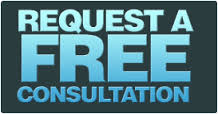
Hitler was known to hate the dentist! Source:http://dailym.ai/1gJ8wZa
The future Führer of Nazi Germany was known to hate the dentist.
A postcard sent during the First World War by Adolf Hitler after a visit to the dentist – in which he claimed to have had 19 teeth removed – has turned up in Munich.
‘You can’t imagine how nice I looked,’ he wrote to a fellow soldier called Karl Lanzhammer who was stationed in France. ‘Now I’m better.’
The card, dated December 21, 1916, has been authenticated after it was found in the collection of a postcard collector.
On the front of the card is a picture of Berlin’s Landwehr Canal and it is marked with the stamp of the 2nd Bavarian Infantry Regiment, Hitler’s unit at the time.

Dentistry does not have to be scary! Source: http://klsjt.com/?p=22
Some patients have such a fear of dentists that they avoid making dental appointments at all, or cancel appointments they do make. They usually tell me they’ve “always” been afraid of dentists. There are several things you can try to overcome this fear:

Find a dentist that you are comfortable with. Sourc of picture :http://www.bestdentistguide.com/content/faqs
Find a Good Dentist for You. Finding a dentist who is sympathetic and understands that you are anxious and will work with you will increase your comfort. You need to feel at ease with your dentist if you want to overcome your fears, and your dentist needs to know what you fear and how they may be able to help you. Good communication also means things like rapport, body language, and using non-threatening language that you can understand. Rapport (a harmonious connection) also implies a relationship of equals, where you don’t perceive your dentist as a threatening or a condescending figure, but as a partner in your care. Communication means that you do things together with your dentist, rather than your dentist doing things to you.
Many dentists offer practices specifically targeted towards fearful people and offer a variety of solutions that may include sedation, and lots of reassurance.

Step by Step you don’t have to do it all at once. Picture source: http://www.nestseller.com/step-by-step-guide/
Step by Step you don’t have to do it all at once. Schedule an examination so you can meet the dentist. Then come back for a cleaning. A couple of successful, low stress experiences, will help you cope.
Take a deep breath through your mouth hold it a bit and then slowly exhale. If you feel you are having an anxiety attack it helps to breath deeply from your stomach than from the chest to the stomach.

Take a deep breath through your mouth and hold it, and then slowly exhale. Source: http://www.mentalhelp.net/poc/view_doc.php?type=doc&id=35085
Set a date after your dentist appointment to do something fun. Or, reward yourself if you think you have overcome your fear.
Muscle relaxation. Progressive muscle relaxation involves tensing and then releasing one group of muscles at a time. It can help to slow heart rate and promote calmness. Just a few minutes of progressive muscle relaxation may help during an appointment.

Focus your mind elsewhere to lessen anxiety. Source: http://www.ehow.com/how_2253213_get-distracted.html
Distraction. Focusing your mind elsewhere is another way to lessen anxiety and pain. The more complicated the task, the better. Listening to music may help. But counting tiles on the ceiling or slats on a window blind may be even more effective.
In dentistry experience and Continuing Education are everything. Dr. Parvin Carter has over 30 years of experience in Practicing General Dentistry and 25 years in Orthodontics. She has thousands of hours of advanced training. In 2000, Academy of General Dentistry awarded Dr. Carter a Certificate of Mastership (MAGD) in General Dentistry. According to the Journal of the Academy of General Dentistry, only 1% of US dentists achieve this high level of advancement. Dr. Carter is a Certified and Preferred Provider of Invisalign. She has successfully treated over 400 patients with Invisalign. For more information please check http://www.drparvincarter.com
|







